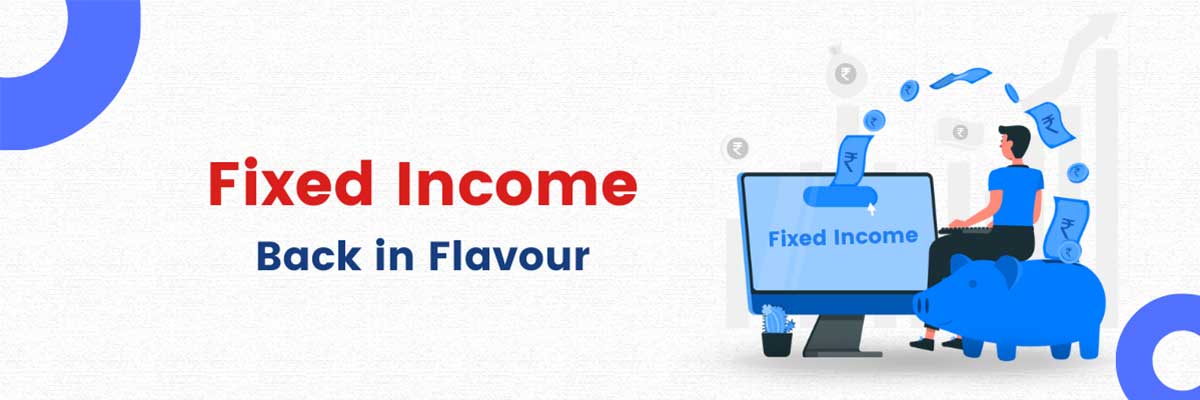With so many options for saving your money through investing, it could become quite the overwhelming task to not only keep up with everything, but also finding the best solution for your needs.
Fixed deposits, or FDs, are just one of the many ways you can invest your hard-earned money and save it for the future. Unlike some of the other means of investing, fixed deposits are very low-risk investing options with good returns and, hence, are very popular.
Simultaneously, similar to banks, the RBI allows certain corporations and NBFCs to receive deposits with a set interest rate and term. These are referred to as company fixed deposits in India or corporate FDs.
Corporate FD can help you financially protect your future in these times of significant market volatility and unpredictable returns since they offer set, dependable pay-outs. Investors have a choice between generating a consistent income with the pay-out option and building capital with the cumulative option.
That said, even after you’ve decided to put your money into a corporate FD, choosing which one could be difficult. There are loads of companies offering corporate fixed deposits in India with a plethora of benefits.
What are fixed deposits?
First of all, let’s start with the very basics. What is a fixed deposit? In India, a fixed deposit is a type of savings account wherein you put in a lump sum of money for a fixed period of time at an agreed upon rate of interest. The interest compounds over time as per the interest rate and, after your term is over, you get your money back along with the interest.
Unlike a regular savings account though, FDs are often fixed over a long period of time for maximum benefits, but you might incur a loss if you withdraw the money prematurely. In India, FDs are primarily provided by two types of institutions - banks (Bank FD) and non-bank financial institutions (Corporate or Company FD).
Are Company FDs better?
Whether you invest in a bank FD or in a company FD, there are certain things to expect. Either way, there are some pros and cons to both. While it may vary from company to company, in general, here are some of the ways company FDs can be better than bank ones:
- Rate of Interest & Return of Investment
The rate of interest, which is also what decides the return of investment, is probably one of the most important aspects to consider. While both banks and corporates provide a decent rate of interest compared to something like a savings account, the rate of interest is usually average for banks when compared to company ones. Due to higher corporate FD rates, you can easily expect much higher returns if you invest in a company FD compared to a bank. Company FDs offer additional percentage of interest rates to Senior Citizens over normal interest rates which may vary from 0.25% to 0.50% depending on the company.
- Tenure
FDs operate on the idea of long-term investment. You take a lumpsum of money and invest it for a fixed period of time. While you can withdraw before the maturity period, it is often not recommended as you might lose on the benefits. Hence, the minimum investment period is an important factor to consider as well. While some banks do offer extremely low minimum tenure of investment, there’s not much benefit in those. Most banks offer sizable returns over longer terms. Corporate FDs are better in this regard, as they can provide higher returns over shorter periods of time.
What are the best Company FDs right now?
Data on interest rates over 1, 3, and 5-year terms are a good indicator of the performance of a company FD. However, it might not be enough to provide you with a clear picture, especially given the fact that corporate FDs are often a higher risk investment option compared to banks. Thankfully, in India, investors also have access to ratings given by certain agencies that can help you decide.
Ratings provided by companies like the Credit Analysis and Research Limited (CARE), Credit Rating Information Services of India Limited (CRISIL), or Investment Information and Credit Rating Agency of India Limited (ICRA), give you an idea of how safe and stable the FD is. These ratings range from a AAA, indicating highest safety and stability, to C, indicating high-risk. There’s also a D rating which indicates that the company has defaulted or gone under.
With these things in mind, here is the latest information on 4 of the best company FDs to invest in right now:
Company Name | Rating | Interest Rates & Investment Details |
Shriram Transport Finance Co. Ltd. | ICRA AA+ CRISIL AA+ | Click here |
HDFC Ltd. | ICRA AAA CRISIL AAA | Click here |
Mahindra & Mahindra Finance Ltd. | ICRA AAA CRISIL AAA | Click here |
| Bajaj Finance Ltd. | ICRA AAA CRISIL AAA | Click here |
Concluding Remarks
As is the case with all investment options, it is important to look out for what’s best for your needs. If you think that long-term investments are the right move for you, then corporate FDs can be a great and relatively risk-free option. Hopefully, this post will help you know what to look for.
In case you have any queries on company FDs please feel free to contact us and we would be happy to answer them.








